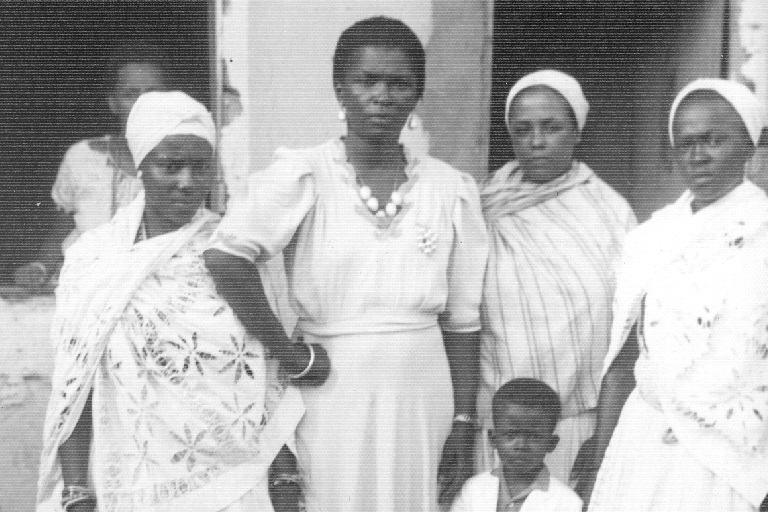Location: United States, Brazil, and West Africa
Dates: 1932-1933, 1935, 1940-1941, 1952-1964
Formats: 569 aluminum and lacquer discs, 83 wire recordings
Accession Number: 86-107-F, 86-108-F, 86-109-F, 86-110a-F, 86-110b-F, 86-111-F
Lorenzo Dow Turner (1890-1972) was an African American linguist who came to be known as the father of Gullah studies following the 1949 publication of Africanisms in the Gullah Dialect, the first major scientific description of Gullah language and culture. This volume, which continues to be a major resource, contains several transcriptions of Turner’s recordings. His research helped build a foundation for scholarship on the African diaspora and disputed the prevailing notion of the time that African American culture was simply derivative of white American culture. Turner proved that there were significant cultural retentions of African cultures among African Americans. Additional fieldwork in the Caribbean, Brazil, and West Africa further substantiated these ideas.
The Archives of Traditional Music holds five collections of ethnographic and linguistic recordings made by Turner which were recorded on 836 aluminum and lacquer discs and wires. The 154 aluminum disc recordings made in the summers of 1932 and 1933 make up the Gullah collection and they document sermons, work songs, stories, spirituals, and accounts of slavery among 50 Gullah speakers.
Lorenzo Dow Turner's collections also include a set of 329 aluminum discs recorded in Brazil ca. 1940-1941 in the states of Bahia, Rio Grande do Sul, Sergipe and Mato Grosso (86-109-F). These recordings contain stories, speeches, and songs in Portuguese and Yoruba; and they are highly important to the history of Brazilian culture as they contain unique recordings of key figures in the traditions of Capoeira and Candomblé. For example, the collection contains the first recordings of Manuel dos Reis Machado, known as “Master Bimba”, as he was the founder of Brazil’s first official capoeira school, Capoeira Regional. Maria Escolástica da Conceição Nazaré Assunção, known as Mother Menininha, is a central figure in Turner’s recordings. She made enormous contributions to the legal recognition of the Candomblé in Bahia and played a vital leadership role in her community. The collection also contains the only known recordings of Mário de Andrade, the father of Brazilian modernism.
In the early 1950s, Turner’s research came full circle when he was able to conduct research in West Africa where he continued his work studying the connections between African music and language and that of African descendant populations in the New World. The ATM holds 279 disc recordings he made in Nigeria, Sierra Leone and Togo between 1952 and 1960 (86-110-F).
Sample 1: A Mende song by Amelia Dawley. July 31, 1933. Harris Neck, Georgia. 86-107-F (EC 10686).
Sample 2: A Prayer. Diana Brown. July 6, 1932. Edisto Island, South Carolina. 86-107-F (12-3396).
Sample 3: Cabocla (Congo song with announcement in Portuguese at the beginning). Manuel Falefá - voice, [Unidentified performers - chorus]. November 15, 1940. Brazil, Bahia, Salvador, São Caetano. Manuel Falefá (aka Manoel Victorino da Costa, 1900-1980) was a candomblé high priest and Yoruba teacher. Born in Bahia, he knew songs of the Jêje, Ketu, Congo and Angola peoples of the African continent. 86-109-F (12-3518 A).
Sample 4: Ilorin story [Mixture of dialects]. Adisa, Ayadi, and Akombi - speakers. Nigeria, Kwara, Ilorin. March 30, 1956. 86-110-F (12-3860 A).
Highlight Contributor: Amelia Lopez
Location:

